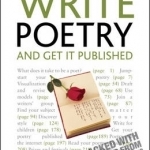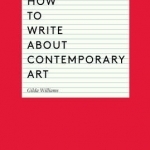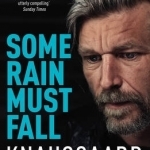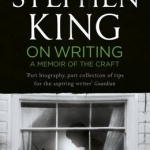Rachel King (13 KP) rated On Writing in Books
Feb 11, 2019
The first half of the book is largely a memoir of King's life, with a focus on his writing career. The reader learns things such as what inspired him, what he liked in fiction, his initial forays into getting published, as well as his many rejections and criticisms. I found it both interesting and ironic that his first big book, Carrie, was accomplished largely thanks to his wife's encouragement, as he never really cared for the main character. He could take the simplest ideas, put two random thoughts together, and make them into these successful stories. All of this is woven into the more mundane aspects of his life, from schooling, to various jobs, to meeting his future wife.
The second part of the book is all about what King considers good writing practices, as well some of the advice that King has received over the years, such as when writing a second draft, subtract 10% from the original. He even goes into the details of good grammar and repeatedly refers to Strunk and White's The Elements of Style. He finishes off this section by showing a section of a first draft he wrote, and then the edited second draft of it to give the reader an idea of how to approach the editing process.
A final section in the book goes into the details of when King was hit and nearly killed by a "blue van" and the effect that it had on his life and his writing. The accident actually occurs before he begins the second part of this book, giving the manuscript the possibility of never being completed. This was probably the most intriguing part of the book for me, as he was able to remember in vivid detail what happened to him, and yet he seemed to be oddly emotionally-detached from its long-term consequences for his life. There is only one short paragraph in which I actually pick up on some emotion, when he discusses how quickly the driver of the blue van will likely be returning to the road. At one point he also made the observation that the driver could have stepped from the pages of one of his novels. What I do love is that his passion for writing helped him to overcome his injuries and regenerate that need to keep putting words to the page.

Write Poetry and Get it Published: Teach Yourself
Matthew Sweeney and John Hartley Williams
Book
A comprehensive guide to writing poetry Write Poetry - and Get It Published is a user-friendly and...

How to Write About Contemporary Art
Book
How to Write About Contemporary Art is the definitive guide to writing engagingly about the art of...

Track Changes: A Literary History of Word Processing
Book
The story of writing in the digital age is every bit as messy as the ink-stained rags that littered...

Dynamic Documents with R and Knitr
Book
Quickly and Easily Write Dynamic Documents Suitable for both beginners and advanced users, Dynamic...

Emma: An Authoritative Text; Contexts; Criticism
Jane Austen, Stephen M. Parrish and George L. Justice
Book
The text of the Fourth Edition of the Norton Critical Edition of Emma is based on the 1816 edition...

A Few of the Girls
Book
'The Irish do love telling stories, and we are suspicious of people who don't have long, complicated...

Some Rain Must Fall: My Struggle
Karl Ove Knausgaard and Don Bartlett
Book
At twenty, Karl Ove moves to Bergen. As the youngest student to be admitted to the prestigious...

My Secret Diary With Password
Lifestyle and Entertainment
App
The perfect secret diary with password that provides you all the modern features which makes this...
